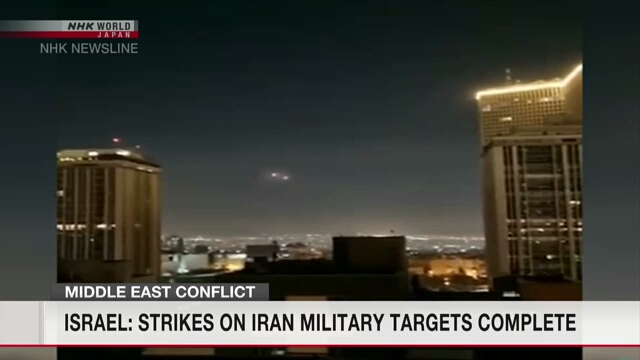Israel Strikes Back: Precision Attacks on Iranian Military Targets Following Missile Assault
In a dramatic escalation of tensions in the Middle East, Israel has announced the completion of precision strikes on military targets in Iran, a move seen as retaliation for a massive missile attack launched by Iran on October 1. This latest round of hostilities highlights the ongoing conflict between the two nations, with both sides exchanging blows in a dangerous game of military brinkmanship.
The backdrop to this latest confrontation is a significant missile assault by Iran, which reportedly involved over 180 missiles aimed at Israel. In response, Israeli forces targeted military bases in Iran, although the full extent of the damage remains unclear. Iranian media outlets have confirmed that explosions were heard around Tehran, particularly in the western and southwestern regions, where military installations were reportedly hit.
Daniel Hagari, the chief spokesperson for the Israel Defense Forces (IDF), emphasized Israel’s right to defend itself, stating in a video message, "The State of Israel has the right and duty to respond, like any other sovereign country." He reassured the public that Israel’s defensive and offensive capabilities are fully mobilized, underscoring the nation’s commitment to protecting its citizens.
The strikes began early Saturday morning, with the IDF issuing a statement around 6 a.m. local time declaring that the operations had concluded. However, Hagari warned that should Iran make the "mistake" of launching another attack, Israel would be prepared to retaliate once more. This statement sets the stage for a potentially volatile situation, as both nations remain on high alert.
Reports from Iran’s state-run television indicated that loud explosions were heard in Tehran shortly after 2 a.m. local time, coinciding with the timing of the Israeli strikes. Additional sounds of air defense activity were reported in eastern and central parts of the city later in the day, suggesting that Iran was on guard against further attacks.
Interestingly, sources cited by CNN indicated that Israel conducted a second wave of strikes, although U.S. officials noted that these operations did not target nuclear or energy facilities. A spokesperson for the U.S. National Security Council confirmed to NHK that the strikes were a form of self-defense in response to Iran’s earlier missile attack. Furthermore, a U.S. Defense Department official stated that the United States was informed of the Israeli operations beforehand, clarifying that there was no American involvement in the strikes.
This latest exchange of military actions between Israel and Iran follows a similar pattern observed in April, when both nations engaged in direct attacks. The ongoing hostilities underscore the fragile state of relations in the region, where military power plays a crucial role in national security strategies.
As the situation continues to develop, the international community watches closely, aware that the stakes are high and the potential for further escalation remains. With both Israel and Iran firmly entrenched in their positions, the question now is whether diplomacy can prevail or if this cycle of retaliation will spiral further out of control.



